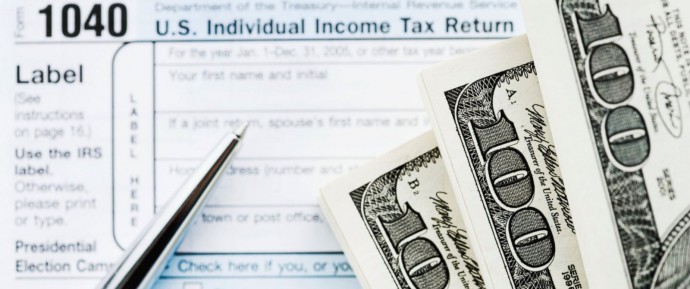
 How tax revenues are spent by the government is a source of eternal and sometimes vicious political debate, as is sometimes tax rates themselves. Yet, when April 15th rolls around every year, most Americans unite in their desire to minimize their personal tax liability, and at times are even in a situation where they are getting a refund. A sudden windfall of money given to you never hurts, so it makes dollars and sense to do whatever you can in the hopes of maximizing your tax refund. Keep reading to learn 7 methods you can use in this understandable pursuit.
How tax revenues are spent by the government is a source of eternal and sometimes vicious political debate, as is sometimes tax rates themselves. Yet, when April 15th rolls around every year, most Americans unite in their desire to minimize their personal tax liability, and at times are even in a situation where they are getting a refund. A sudden windfall of money given to you never hurts, so it makes dollars and sense to do whatever you can in the hopes of maximizing your tax refund. Keep reading to learn 7 methods you can use in this understandable pursuit.
1) Take advantage of retirement plans available to you. If you have 401(k) or 403(b) options at your place of employment, the contributions to such plans are typically pretax, meaning you pay no taxes on them at that time. If you do not have such plans available, consider making IRA contributions, which are tax deductible to certain annual limits. Those limits vary be age and income.
2) Make sure that your deducting all possible donations. Anything you give to nonprofits, charitable organizations, religious groups and even educational institutions can all be written off as deductible donations. Contributions that you can deduct can be more than just cash you give, as stocks and bonds, personal property, and even personal expenses you accrue on volunteer trips all count. The IRS lets you deduct up to half of your overall income in this manner, if you can provide the right paperwork.
3) Double check your filing status. Everyone is entitled to a standard deduction, but the amount of the deduction varies. Married couples that file jointly get to claim twice the standard deduction as single filers or even married individuals who file separately. Single individuals can sometimes get larger than the standard deduction if they meet the criteria for filing as a head of a household.
4) Increase your withholding at work. Talk to human resources and see if you can drop one or two of your exemptions. This will increase the amount of your paychecks that are withheld for taxes and boost your chances of getting money back in the spring.
5) Don’t neglect financial obligations to your family, as certain expenses are deductible. Child care expenses so a parent can work count, as do out-of-pocket medical expenses. Alimony and care for an elderly parent or relative also counts. Unfortunately, health insurance premiums do not count.
6) Track your professional expenses. Most things that you spend money on for work but don’t get reimbursed for can be written off when doing your taxes. These kinds of items include dues to professional organizations, uniforms or clothing you don’t wear off-duty, and car maintenance and use when performing work. Be careful here though and only claim the appropriate deductions, as gas and mileage while doing deliveries would count, but your daily commute to and from work does not count.
7) Make sure the IRS knows if you are operating a small business within your home. Portions of utilities used for the small business, such as electricity, telephone and Internet, can be deducted, as can square footage used for small business activities. In some cases, even percentages of your mortgage payments can be deducted.
Now that you know these 7 methods for maximizing your tax refund, you can be sure to get or save every dollar you can from the federal government for yourself. Apply any of these methods that are relevant to your personal circumstances so that you can sleep at night knowing you did all that you could.